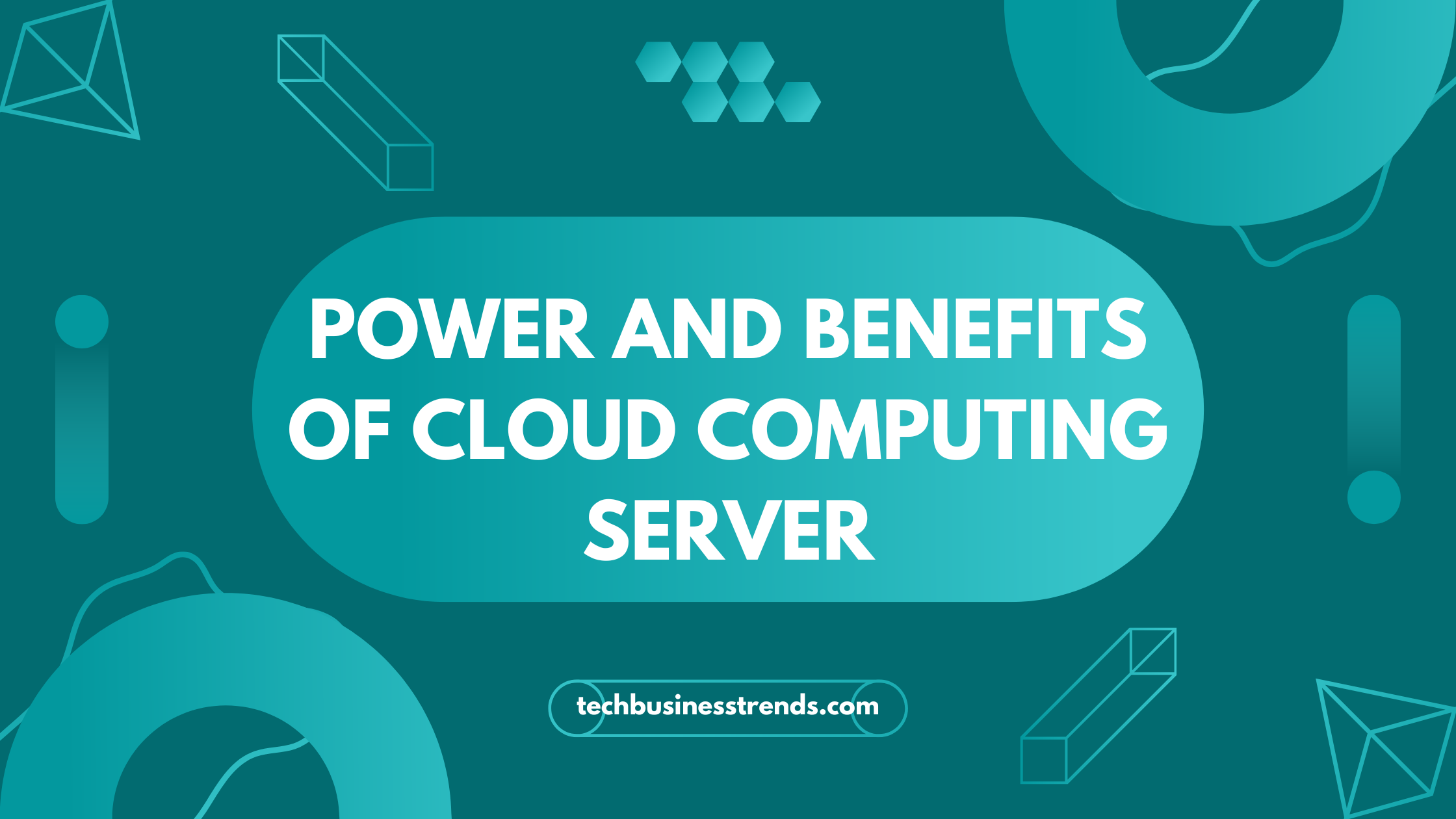Cloud computing refers to the on-demand delivery of IT resources over the internet. Instead of managing your own physical servers and data centers, you access these resources – like computing power, storage, databases, networking, software, and even analytics – from a cloud provider like Amazon Web Services (AWS), Microsoft Azure, or Google Cloud Platform.

Think of it like renting electricity instead of running your own power plant. Cloud computing offers several advantages:
- Scalability: Easily adjust resources up or down based on your needs.
- Cost-effectiveness: Pay only for what you use, eliminating upfront investment in hardware.
- Security: Cloud providers invest heavily in security measures to safeguard your data.
- Accessibility: Access applications and data from anywhere with an internet connection.
- Automatic updates and maintenance: Cloud providers handle these tasks, freeing up your IT team.
What is a cloud computing server?
Before getting to know the strength and benefits, it’s miles critical to recognize “What is a Cloud Computing Server?” A cloud computing server is a digital server, now not a bodily machine, that is living within a cloud computing environment.

These servers are presented “on-demand” by using cloud service providers like Amazon Web Services (AWS), Microsoft Azure, or Google Cloud Platform.
Here’s how it works
Traditional Servers: In the past, businesses relied on bodily servers located on-website online of their own statistics centers. These servers required premature funding, ongoing preservation, and restricted scalability.
Cloud Servers: Cloud computing replaces those bodily servers with digital servers. Cloud providers use virtualization software to partition effective physical servers into more than one digital machine, each acting like an independent server.
Let’s delve into the electricity and advantages of cloud computing servers, exploring how they can empower your business:
On-Demand Scalability
Imagine being capable of right away adjusting your computing resources to meet fluctuating demands. Cloud computing servers provide this flexibility. Need to ramp up processing energy for a hectic season? No trouble! Simply scale your server assets up. Conversely, at some stage in slower intervals, you can cut down, putting off needless expenses.
Cost-Effectiveness
Cloud computing servers do away with the prematurely funding required for bodily servers and their ongoing protection. You only pay for the assets you use, leading to full-size cost financial savings. Additionally, cloud vendors take care of preservation and upgrades, freeing your IT crew to recognize core enterprise tasks.

Enhanced Security
Cloud vendors make investments heavily in robust security features. Your records reside in steady facts facilities with advanced security protocols, regularly exceeding the skills of in-residence IT infrastructure. Additionally, catastrophe healing capabilities make sure commercial enterprise continuity in case of unexpected occasions.

Improved Accessibility and Collaboration
Cloud computing servers allow authorized customers to get entry to programs and information from any device with an internet connection. This fosters seamless collaboration amongst geographically dispersed teams, selling a greater dynamic work environment.
Automatic Updates and Maintenance
Cloud providers cope with server updates and renovation, casting off downtime associated with guide updates. This translates to improved device overall performance and a reduction in IT workload.
Innovation on Demand
The path to cloud computing opens. Get knowledgeable about cutting-edge technologies and systems such as artificial intelligence. Companies can use those tools without a significant upfront investment, accelerating innovation and gaining a competitive edge.
Cloud computing servers are constantly evolving, pushed in the spirit of “the quest for innovation.”
Here are a few exciting developments shaping the future of cloud servers:
Serverless Computing: This progressive approach eliminates the desire to completely control the server infrastructure. Developers write code and do installations, and the cloud company handles server provisioning and scaling on a regular basis. This allows for greater agility and lower cost.
Artificial Intelligence and Machine Learning (AI/ML): Cloud carriers are adding AI and ML capabilities to their server operations. This functionality allows you to automate server control tasks, make more useful resource allocations, and anticipate future desires for dynamic measurement.

Containerization Technologies: Technologies like Docker and Kubernetes are becoming well known for cloud servers. Containers gather systems and dependencies together into standardized units, with faster deployment, less complex scaling, and improved portability to cloud environments in mind
Hybrid and Multi-Cloud Solutions: Companies are increasingly adopting hybrid and multi-cloud strategies. This requires a combination of on-premise infrastructure and public cloud assets from a couple. Cloud server development makes it easy to modify these complex environments with ease.
Specialized cloud servers: Cloud carriers provide specialized servers which are designed for a selected enterprise. For example, excessive-performance computing (HPC) servers meet the desires for complicated scientific simulations, whilst pictures processing unit (GPU) servers accelerate responsibilities which include video editing and system learning
Quantum Computing: While still in its infancy, quantum computing has wonderful ability for cloud integration. Quantum servers may want to revolutionize regions including drug discovery, materials science and monetary modeling by using solving issues past the talents of traditional computing
Beyond the basics
The power of cloud computing servers extends past those fundamental advantages. Cloud companies offer an extensive variety of offerings from records garage and backup to development tools and analytics platforms. This allows businesses to customize their cloud environment consistent with their particular necessities.
Thinking of the clouds?
Cloud computing servers offer an effective answer for companies looking to streamline their IT infrastructure and open up new opportunities. If you’re thinking about a flow to the cloud, pay close attention to your needs and look for a good cloud issuer which can supply a secure and scalable answer.
By harnessing the power of cloud computing servers, groups can empower their employees, streamline operations, and attain new heights of fulfillment.
FAQs
Is cloud computing secure?
Cloud providers make investments heavily in security features, regularly beyond the abilities of on-premise IT infrastructure. However, it’s important to choose a good company with strong security practices and facts encryption protocols.
What are the different types of cloud computing offerings?
There are three primary classes:
Infrastructure as a Service (IaaS): Provides virtualized computing infrastructure which include servers, storage, and networking.
Platform as a Service (PaaS): Provides a platform for growing, deploying, and managing programs.
Software as a Service (SaaS): Provides software program packages available over the Internet.
How many tons does cloud computing cost?
Cloud computing costs range relying on resources used, storage necessities, and provider degrees decided on. Most companies provide pay-as-you-go costs, permitting you to reduce the fee based totally on usage.
Is cloud computing right for my business?
Cloud computing can assist organizations of all sizes. Consider your IT wishes, price range, and scalability wishes to determine if the cloud is healthy.
Where can I study greater cloud computing servers?
Many cloud carriers offer distinct sources, documentation, and tutorials that will help you get your business started. Additionally, many online resources and industry books go into greater intensity in cloud computing concepts and excellent practices.
